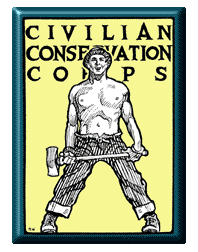The above recipe for a mustard plaster - a very commonly used home remedy in the early to mid 20th century - was taken from the medical volume of The People's Home Library: A Library of Three Practical Books; sold door-to-door by salesmen, published by the R.C. Barnum company, "...a well-known subscription book company at that time." Many is the time I watched my mother make mustard plasters, sometimes for my father, and sometimes even for me (and this was in the 1960s yet...) When I was small, I tended towards chestiness, and had more than my share of terrible colds, flu, chicken pox, measles, not to mention ear and tooth aches. My mother nursed me very well through them all, with help from my grandmother who lived nearby, this book, her own common sense, and experience. It may have been old-hat by then, but old tech doesn't mean irrelevant or outdated. Sometimes the old cures are very effective.Mustard Plaster Recipe: This is made of different strengths, depending upon the length of time it is desired to keep it on and the sensitiveness of the skin.
1. Equal parts of mustard and flour.
2. One of mustard and two of flour.
3. One of mustard and three or four of flour. White of an egg added makes it better and not so blistering.
A paste is made with warm water and spread between the layers of muslin and left on no longer than ten minutes. When the skin is red remove the plaster. This is used when you wish a quick counter-irritation.
My Grandma bought a 1920 edition of the first in the series, called The People's Home Medical Book, by T.J. Ritter, MD. It described Dr. Ritter as a "...Graduate of both the allopathic and homeopathic schools; formerly asst. to the Chair of the Theory and Practice of Medicine, Michigan State University, Ann Arbor, Mich."
My Mother grew up under the care of Grandma using the advice of that book, together with her own common sense. In turn, my own family, including myself, came under it's influence in due time. Where some may have learned about human anatomy from National Geographic or girlie magazines, I learned from the People's Home Library.1
As I raised my own children, I didn't have the book to refer to, but I remembered my mother's examples, and carried on the tradition of common sense home nursing care, and not running to a doctor every time my children sneezed. I provided simple but effective remedies like gargling with warm salt water when there was a sore throat, providing a comforting (and chest/nose opening) warm 'steamer' (aka vaporizer) at night when they slept, had oil of cloves on hand for tooth aches and ear aches, etc.
1 - I also learned some interesting facts of life from my Mom's Bible, which was illustrated in color with reproductions of famous painter's renditions of scenes from the Bible. I must admit that I was, even at a tender age, very appreciative of the curve of the nearly nude derriere of Samson as he pushed the mill stone around...but that's another topic altogether!


















